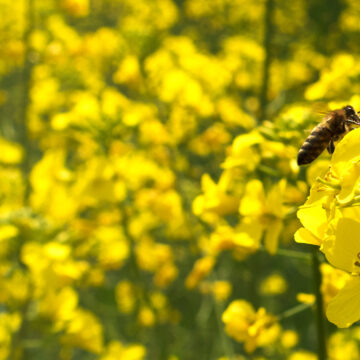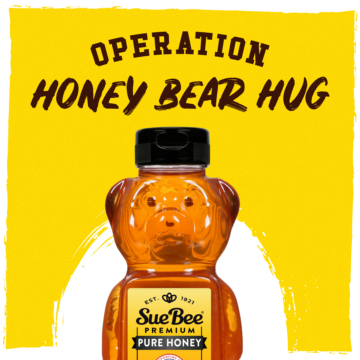Lee’s Bees
Sioux Honey beekeeper falls into the honey business
Some people think beekeepers are a little cracked in the head. Why else would someone want to work with hundreds of thousands of insects that sting them on a regular basis?
It’s natural to think, “He must have been dropped on his head!”
Lee Albritton’s answer: “That’s exactly what happened.”
“I was trimming some trees in a front-end loader bucket at our farm, and I fell out of the bucket and landed on my head and broke my neck,” the Florida-based beekeeper says. “With that kind of injury, I wasn’t sure what I was going to be able to do.”
Lee – a member of the Sioux Honey Association Co-op since 1994 – had a few beehives on his vegetable farm just outside of Gainesville, Florida. He had been using them to pollinate his squash when a friend suggested he take the bees to south Florida’s orange groves, before he needed them to pollinate his squash crop.
“I had 11 hives, back in 1987, so we took them down to the orange groves. A few days later, I fell and broke my neck.
“I really hadn’t intended to make the bees a business, but then I had the accident and … well, I just sort of fell into it,” Lee said with a laugh.
After Lee’s neck healed, he drove south to pick up his hives from the orange groves. In his absence, the bees had not only provided the pollination services needed, they had also created several hundred pounds of the area’s highly coveted orange blossom honey.
“I thought, ‘Well, that’s kind of neat – they made honey without me being there.’ And the great thing is, honey isn’t perishable like my vegetables. But with my neck, I wasn’t sure it was something I would be able to pursue.”
Of course, Lee had to learn a lot more about the art of beekeeping. It was the late 1980s, so it wasn’t as if he could hop on the internet, go to YouTube and type in “how to be a beekeeper.”
“But I knew an older gentleman who knew all about beekeeping,” Lee said. “And that’s what you had to do prior to the internet; you had to ask someone older than you who knew how to do something. Or read it in a book.”
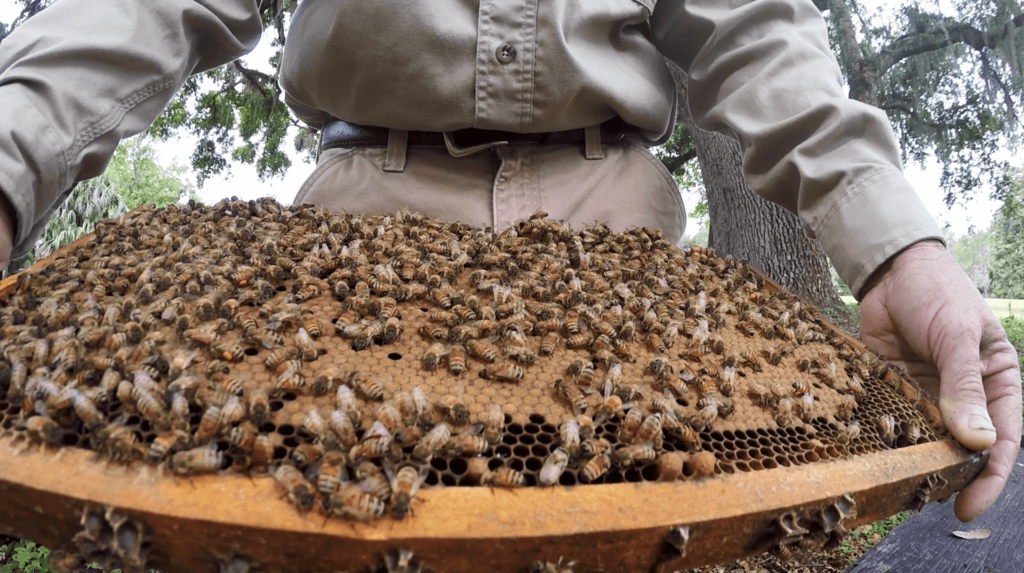
A new career begins
Lee’s parents were originally from Jacksonville, Florida, and his father was a career serviceman in the Air Force. After retirement, Lee’s parents moved back to Florida – this time settling in the Gainesville area.
Lee attended the University of Florida in Gainesville, where he studied animal science. His intention at that time was to have a career in the cattle business, and he still has a few cows on his property in Alachua, Florida, about 16 miles northwest of Gainesville.
As time went on, Lee acquired more hives and eventually had the opportunity to join the Sioux Honey Association Co-op, an opportunity he jumped at.
“Joining Sioux Honey was such a positive thing for us,” Lee says. “Right away, it solved logistic problems. They make it so easy to transport our honey to be bottled.”
The best part of being a Sioux Honey member, Lee says, is the sense of ownership.
“You feel like it’s your bottling company. I go into grocery stores here in Florida, and people maybe see my shirt and they say, ‘Oh, so you make honey.’
“You can tell them that there may be five to 10 products in that grocery store that are essentially my honey. So it’s nice to be able to say that. You do feel like you own that.”
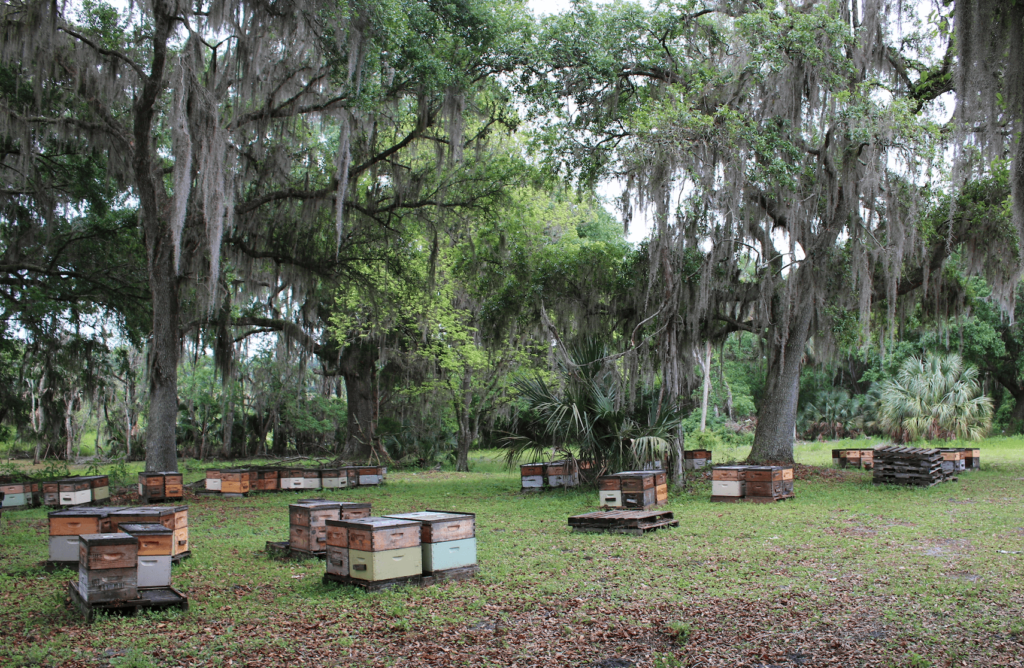
Can’t imagine another way of life
Lee’s honey business – which he affectionately calls “Lee’s Bees” – is flourishing now and includes four full-time employees who help with everything from pollination services and placing hives in various foraging locations to honey extracting and queen-bee rearing.
Raising queen bees to sell to other beekeepers so they can create new hives has become a significant part of Lee’s bee business.
“My dad also helps out with the business,” says Lee. “He does all of our record keeping. He’s 88 and still goes to the farm and checks on our cows and does those kinds of things.”
Lee’s five children have gone different routes in life with their careers. He said two of them have allergies to honeybee stings, so that prevented them from being involved.
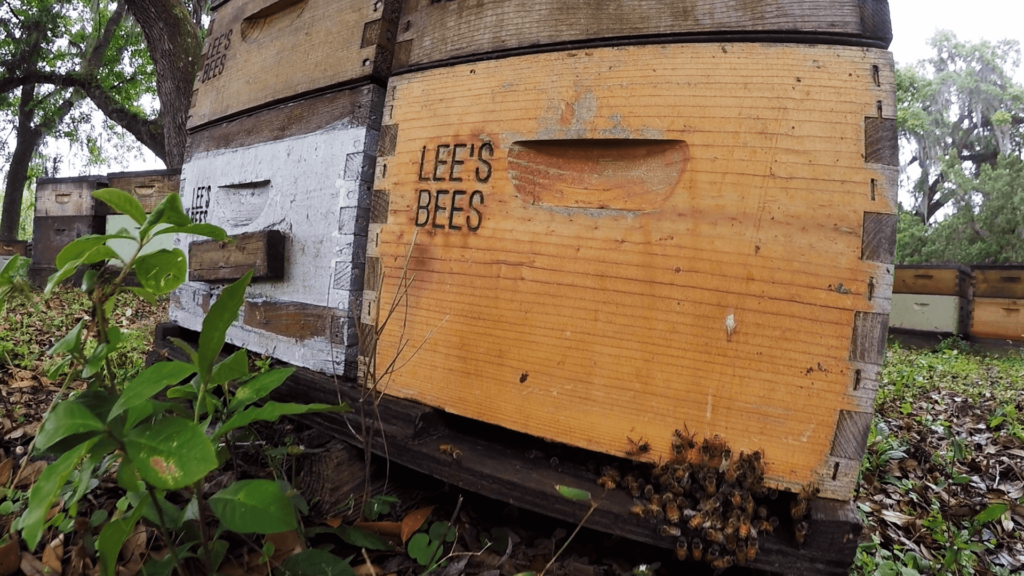
“I’ve got to work on a succession plan, actually. I have sort of a plan, but it probably won’t be one of my family members,” Lee says.
However, that won’t happen anytime soon. For now, Lee is enjoying doing something he always wanted to do: Work with animals. It just so happened that it ended up being a different kind of livestock.
“It’s interesting to deal with a stinging insect daily to make your living. That’s an odd occupation,” Lee says. “But it’s amazing what they can do – what the bees can do. How much they can gather; how quick they can do it.
“And we’re outside every day, in various settings. Not many jobs allow you to do that. Even most normal farms … you’re stuck on the same farm. But with the honey business, you’re moving around to different places.
“It’s so beautiful in the orange groves when they are blooming. The smell is tremendous. The bees are doing well, so you feel productivity is happening. It feels good.”

